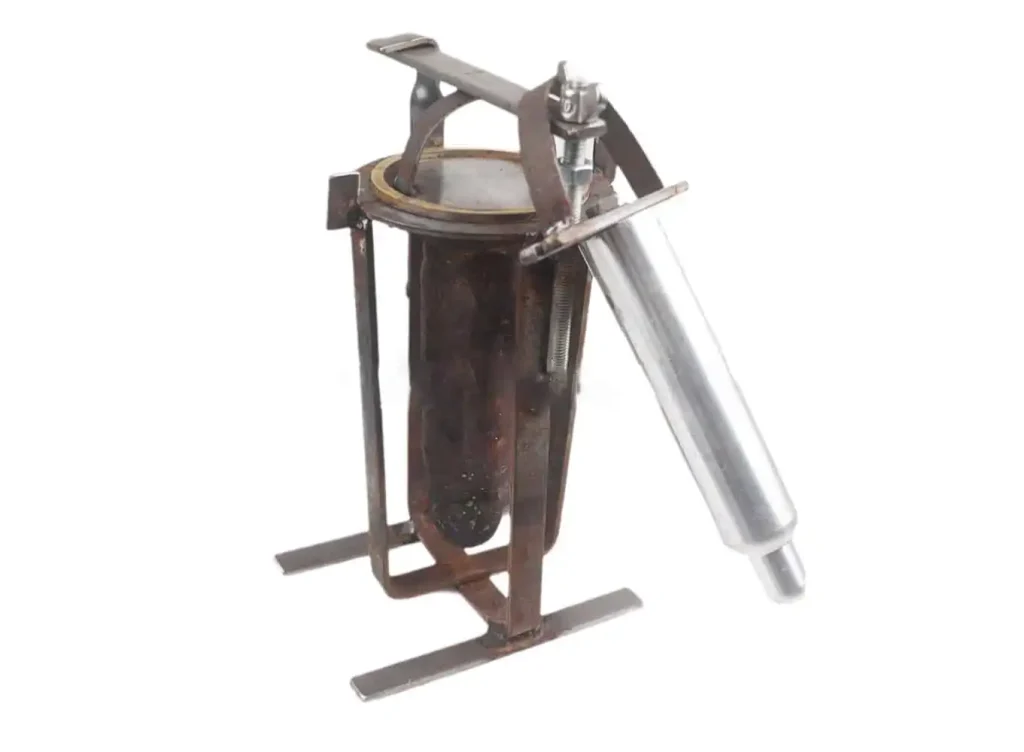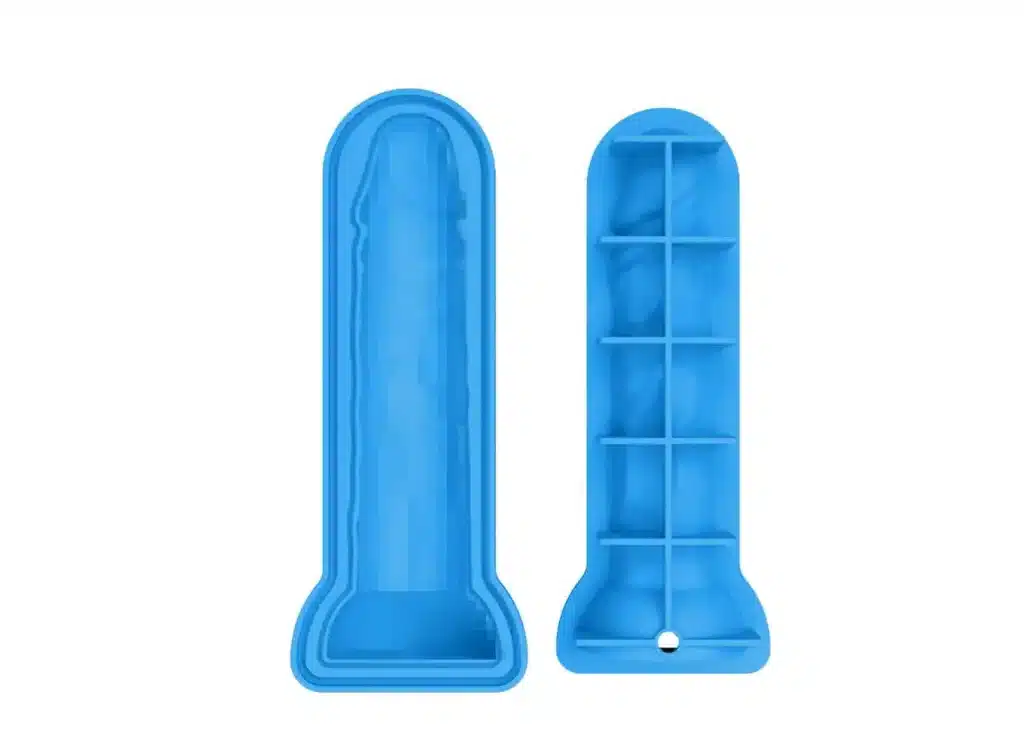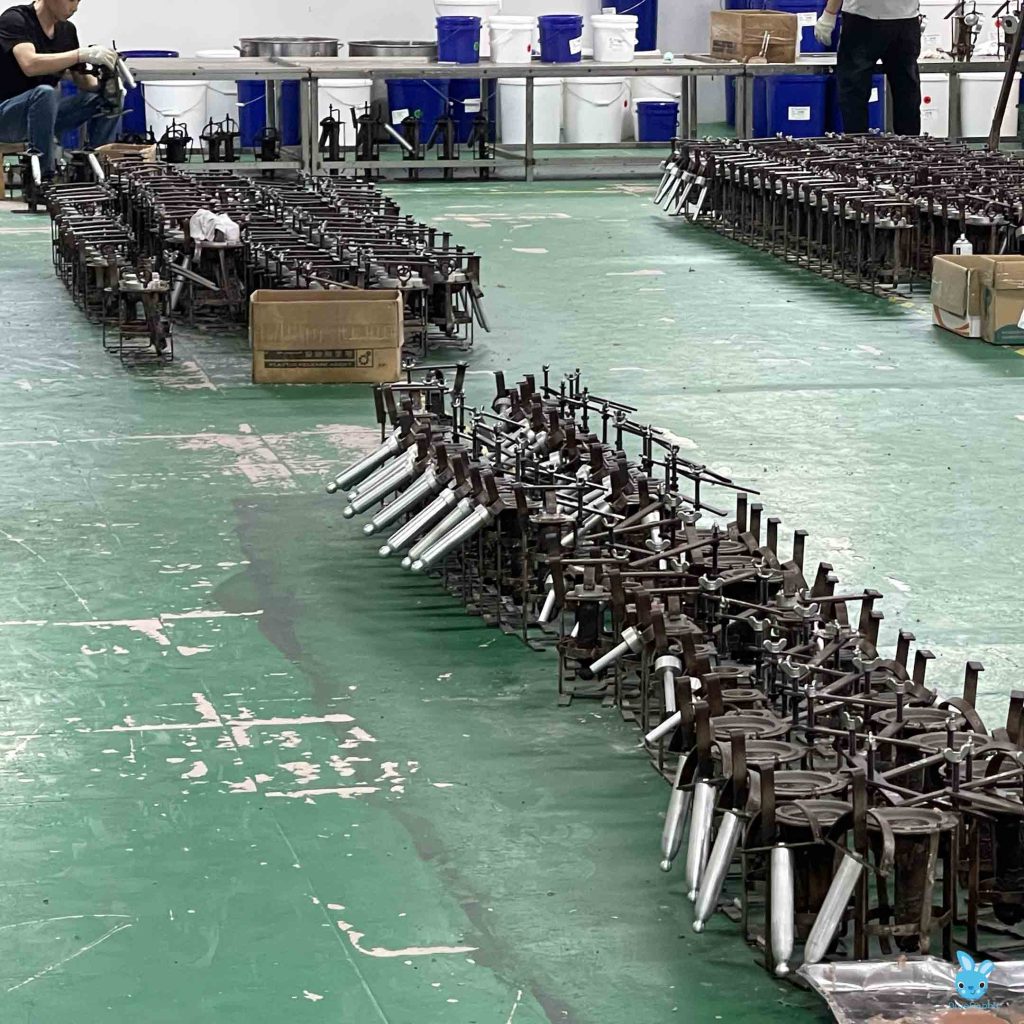This article will provide a detailed comparison of the features and performance of three types of dildo molds: silicone, metal, and plastic. It will help manufacturers and DIY users better understand these molds and choose the best one for their needs.
1. Silicone dildo mold
Silicone dildo mold is generally free from harmful substances and does not release toxic gases or chemicals in high-temperature environments, making them a safe and health-conscious choice. The raw material, silicone, is hypoallergenic, and its smooth, non-porous surface makes it difficult for bacteria, dust, and other fine particles to accumulate, providing excellent antibacterial properties.
The chemical structure of silicone is highly stable, allowing it to maintain relatively stable performance in various environments such as high temperatures, humidity, and chemical exposure. This stability grants silicone molds good heat resistance and stability. As a result, during the dildo manufacturing process, silicone molds can endure multiple heating and cooling cycles without aging, warping, or cracking.
Silicone’s molecular chains are tightly arranged with high entanglement, giving it excellent flexibility and extensibility. When subjected to impact, these properties help absorb the force and rebound to their original shape. This allows for highly detailed designs, such as simulated veins and textures, offering superior precision.
The silicone dildo mold’s excellent flexibility and extensibility enable fine adjustments during production, providing greater operational flexibility. Additionally, during demolding, these two properties, combined with lower adhesion, make it easier to remove the solidified product. Workers can apply slight deformation to the mold to detach the product.
Silicone dildo mold is relatively moderate compared to metal molds, generally around 30% of the cost range, depending on mold complexity, size, and manufacturing process.
These characteristics make silicone molds suitable for high-end dildos with intricate, detailed designs or custom dildo needs for manufacturers or DIY enthusiasts.

2. Metal dildo mold
Metal dildo mold is highly safe, as most metals (such as stainless steel and aluminum alloys) are biocompatible and do not typically cause allergic reactions when in contact with the skin. As a result, they usually do not affect the product’s safety. However, the metal surface treatment and manufacturing processes may have some impact, as untreated metal surfaces can become rough or flawed, potentially affecting product quality.
Metal dildo mold has high melting points, with some capable of withstanding temperatures up to 300°C or higher. This makes them well-suited for high-temperature production processes such as injection molding and hot pressing. They also offer excellent stability and resistance to deformation, making them ideal for mass production.
The hardness and strength of metal dildo molds allow them to withstand prolonged large-scale production while maintaining their structure and shape. Their hardness resists wear and external forces, but their high strength and hardness make metal molds less flexible and difficult to adjust and modify.
The manufacturing cost of metal dildo molds is high due to the need for processes such as cutting and milling. While high-precision CNC equipment can be used, metal molds do not capture the intricate, fine details and silicone molds, which results in lower precision than silicone, though still maintaining high accuracy.
Metal dildo mold have smooth surfaces and low friction coefficients, which increase the molecular attraction between the product and the mold. This can make demolding more difficult than silicone molds, requiring additional handling to release the product.


3. Plastic dildo mold
Plastic dildo mold is relatively safe but not as safe as metal and silicone. Plastic’s safety depends on its raw materials—high-quality plastics are safe, non-toxic, and hypoallergenic. In contrast, poor-quality plastics may contain harmful substances or release toxic gases when melted, potentially causing allergic reactions.
Plastic dildo mold has relatively poor heat resistance, generally between 80°C and 100°C. Exceeding this temperature may cause them to soften, deform, or melt. Therefore, their durability is lower, and their wear resistance is inferior to metal and silicone molds. Plastic molds are not suitable for high-temperature processing and are typically not used by factories for production but rather by DIY beginners for practice.
Plastic dildo mold are easy and inexpensive to manufacture, making them cost-effective. They are produced through precise injection molding processes, which can achieve fine details. However, due to their relative softness, they cannot maintain the high detail precision that metal or silicone molds can provide.
Plastic dildo mold offers moderate flexibility, higher than metal but much lower than silicone. As a result, they are more prone to breaking under impact or stretching and cannot achieve demolding through self-deformation like silicone molds. Additionally, while their surface is smooth, it is not as smooth as metal, leading to moderate difficulty in demolding.


4. Summary comparison table
| Feature | Silicone Mold | Metal Mold | Plastic Mold |
|---|---|---|---|
| Safety | High (Non-toxic, hypoallergenic) | High (Minimal chemical residues) | Low (Potential chemical residues) |
| Hypoallergenic | Excellent (Skin-friendly) | Good (Safe with proper treatment) | Moderate (May cause allergic reactions) |
| Heat Resistance | High (200°C – 250°C) | High (Suitable for high-temperature materials) | Low (80°C – 100°C) |
| Durability | Moderate (Prone to wear and tear) | High (Long-lasting) | Low (Short lifespan) |
| Cost | Moderate to High | High (Expensive initial investment) | Low (Budget-friendly) |
| Precision | High (Supports intricate designs) | High (Uniform and precise) | Low (Limited detail capability) |
| Flexibility | High (Customizable designs) | Low (Fixed designs) | Moderate (Simple designs) |
| Ease of Demolding | Easy (Flexible material) | Difficult (Requires additional processing) | Moderate (Rigid but manageable) |
| Toughness | Excellent (Highly elastic) | Poor (Rigid structure) | Moderate (Some flexibility) |
| Best Use Case | Custom, high-end products, small to medium production | Mass production, standardized products | Simple designs, short-term projects |
5. Recommendations for manufacturers and DIY users
Manufacturers
- Silicone dildo mold: Best for the research and development stage or production of high-end custom products.
- Metal dildo mold: Ideal for large-scale production, particularly for standardized or established designs.
- Plastic dildo mold: Occasionally used for market testing or temporary production of low-end products.
DIY enthusiasts
- Silicone dildo mold: The most common choice for personalized designs and handmade creations.
- Plastic dildo mold: Best for beginners looking to experiment or create simple-shaped dildos.
- Metal dildo mold: Generally not used by individuals due to cost and complexity.
Conclusion
Each type of dildo mold has its advantages and characteristics, making it suitable for different scenarios. You can use the information above to find the type that best fits your needs.
In addition to offering a wide range of wholesale dildos, Blue Rabbit also has various dildo molds, primarily metal molds. For custom orders, we manufacture dildo molds based on the client’s design and then proceed with production to create custom dildos in bulk. If you have custom ideas or designs, feel free to contact us—we will ideally bring your vision to life.

